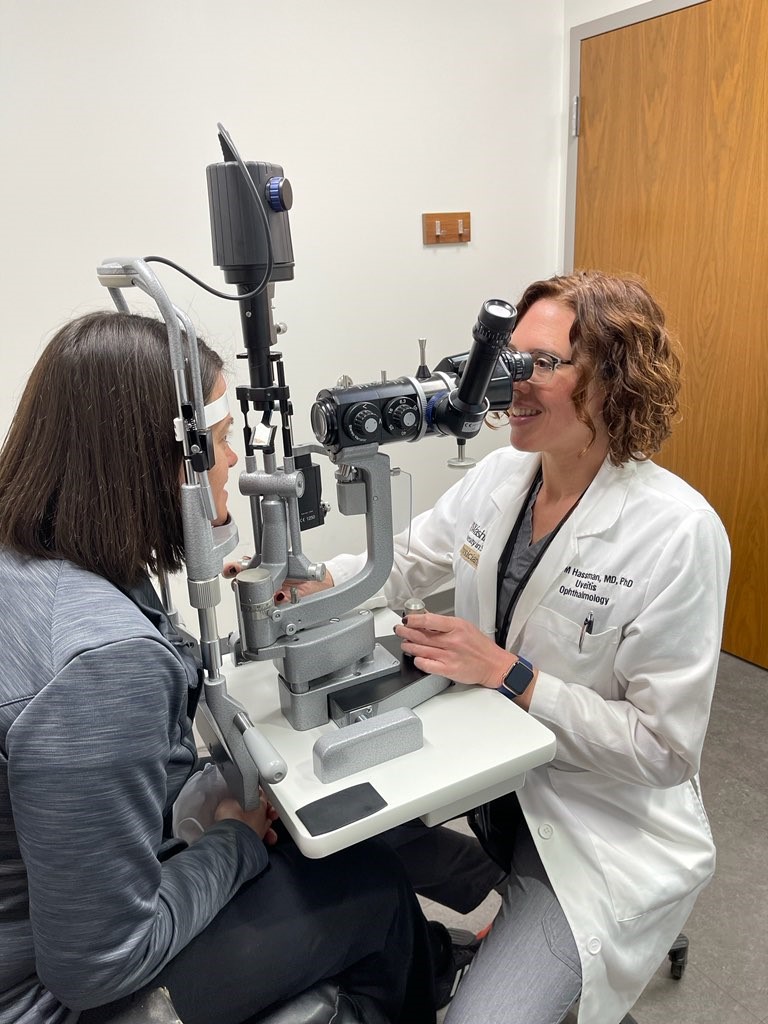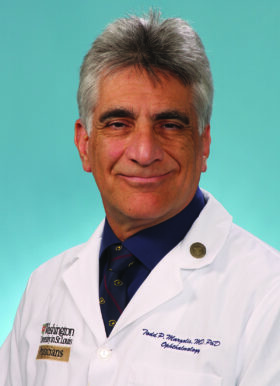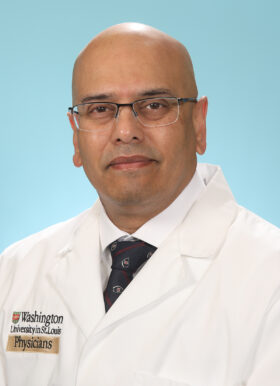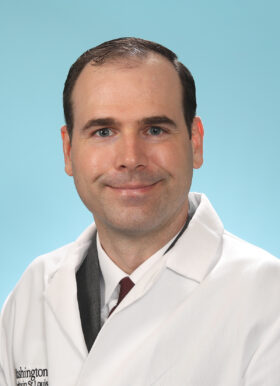Uveitis Specialists
Washington University has expert uveitis doctors in the St. Louis area. Our physicians use advanced technology to provide the best uveitis treatment available. We make sure each of our patients receive compassionate care from our team of uveitis doctors.
Uveitis is inflammation of the uvea or middle layers of the eye. The uvea includes the iris (the colored part of the eye), the choroid (the middle blood vessel layer) and the ciliary body—the part of the eye that joins both parts. Uveitis is the eye’s version of arthritis. The most common symptoms are redness in the white part of the eye, sensitivity to light, blurry vision, floaters, and irregular pupil. Uveitis can occur at any age, including during childhood.
Uveitis is easily confused with many eye inflammations, such as: conjunctivitis (conjunctival inflammation) or pink eye.
For appointments call:

These eye conditions can be challenging to diagnose for primary care physicians and even for many eye doctors. If the symptoms are not relieved with standard eye treatments, patients should see a uveitis doctor. The Washington University uveitis doctors work with a multidisciplinary team to come up with an uveitis treatment plan to relieve your symptoms.
Uveitis has a variety of causes including:
Sarcoidosis
Lupus
Rheumatoid arthritis
Ankylosing spondylitis
Psoriasis
Inflammatory bowel disease like Crohn’s and ulcerative colitis
Conditions treated include:
Keratitis (corneal inflammation)
Episleritis
Scleritis (blood vessel inflammation in the episclera or sclera respectively)
Acute closed angle glaucoma
Uveitis Specialists

Todd Margolis, MD, PhD
Alan A. and Edith L. Wolff Distinguished Professor and Chairman, Ophthalmology and Visual Sciences
- Email: margolist@wustl.edu

P. Kumar Rao, MD, MBA
Professor, Ophthalmology and Visual Sciences; Vice Chair for Clinical Affairs
- Retina, Uveitis, Ocular Oncology

James Walsh, MD, PhD
Assistant Professor, Ophthalmology and Visual Sciences
- Email: walsh.j@wustl.edu